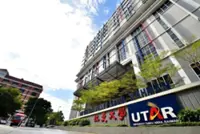
Universiti Tunku Abdul Rahman (UTAR) remains steadfast in its commitment to sustainability, equipping not only young talents but also local communities with the skills and knowledge needed to drive sustainable food production and environmental conservation.
Follow us on our official WhatsApp channel for breaking news alerts and key updates!
Thank you for your report!





